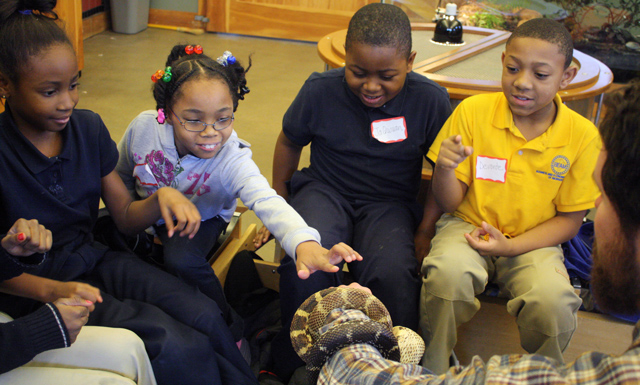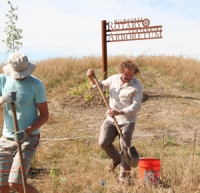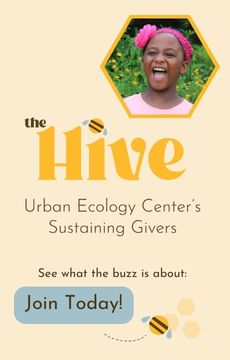Autumn is when nature provides us with a reminder of change: leaves become vibrant, the sun sets early and morning frost is on windows. It is also the season when we at the Urban Ecology Center reflect on our year and the changes we made as an organization. Our fiscal year begins in September in order to include an entire school year, so fall is the time when we’re getting ready for a “new year.”
2012-13 was a year of tremendous growth. During the year, we:
- Opened the Menomonee Valley branch
- Established 24 acres of outdoor classroom along the Menomonee River on a former brownfield/railroad yard
- Planted an orchard in Washington Park and GE Healthcare gave the whole building a facelift
- Opened the Milwaukee Rotary Centennial Arboretum, a revitalized greenspace grown out of a combination of post-industrial, county park and riparian lands
These accomplishments are visible at each site, but we also want to know if all our work, as we state in our mission, “fosters ecological understanding as inspiration for change”. Here are two of the results we track in order to gauge how we are achieving our mission:
Our land stewards have worked tirelessly to create beautiful spaces that improve the richness of our urban habitats and help people connect to nature. Is our community connecting? We think so! Our research team created a park-use study indicating that people visited the natural areas of our three branches over 208,000 times last year! Add program participation and visits to our buildings for a grand total of over 307,000 visits!
Each year, as our budget grows, we endeavor for volunteer labor to grow with it. Our goal each year is to have in-kind labor match 10% of our budget. Using the rate of $18.50 per volunteer hour, as estimated by the Independent Sector, last year we documented $375,011 worth of contributed labor. Thanks to over 3,000 volunteers, we exceeded our budget goal. Wow! (See more info about our volunteer support on the next page).

With all this activity, we still wanted to know are people learning anything? This past year marked the completion of a science achievement study of our school program, the Neighborhood Environmental Education Project. Conducted by a reputable external evaluator, the Center for Urban Initiatives and Research, the study showed encouraging results. For example, students moved from answering just over 50% of the questions correctly before their astronomy class to 75% correctly after. We surveyed four different content areas. All assessments show statistically significant improvement in understanding science content, regardless of instructor or branch.
The questions matched standardized test content and format, showing a correlation between our trips and improved science scores. This indicates that the structure and format of our hands-on science education is effective, as all of our educators saw similar results.
Science understanding is a critical part of developing ecological literacy — which is a core part of our mission. In addition to the science achievement study, over 4000 participants in the school program completed ecological literacy specific surveys. On average 93% of them indicated they 1) felt more connected to nature, 2) developed their critical thinking skills, 3) deepened their sense of belonging to a community and 4) strengthened their respect for the environment because of their experiences with us. 99% of the students, teachers and administrators surveyed would recommend us to their friends.
So, yes! Based on these and many additional measures, we believe we are creating the change we aspire to achieve through our mission. This kind of change is good, and yet there is so much more work ahead to achieve an ecologically literate and sustainable community. As you watch the seasons change, you are invited to join the Center as we work toward important changes for our urban children, adults and natural areas. Together we can achieve amazing things!





